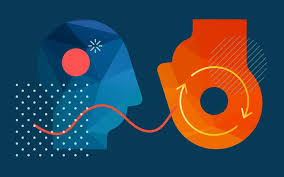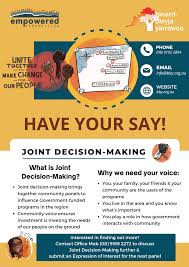Understanding Incremental Policy Making
Incremental policy making is a gradual, step-by-step approach to developing and implementing public policies. Rather than making sweeping changes all at once, incremental policy making involves making small adjustments and improvements over time.
One of the key benefits of incremental policy making is that it allows policymakers to test out new ideas on a smaller scale before fully implementing them. This can help identify potential challenges and unintended consequences early on, allowing for adjustments to be made before widespread implementation.
Another advantage of incremental policy making is that it can help build consensus among stakeholders. By taking small steps and involving various parties in the decision-making process, incremental policy making can lead to more collaborative and sustainable solutions.
However, incremental policy making also has its limitations. Critics argue that this approach can be slow and inefficient, especially when urgent action is needed. Additionally, incremental changes may not address underlying systemic issues that require more comprehensive solutions.
In conclusion, incremental policy making is a valuable approach that offers flexibility, collaboration, and the opportunity for learning from experience. While it may not always be suitable for every situation, understanding the principles of incremental policy making can help policymakers develop more effective and sustainable public policies.
Understanding Incremental Policy Making: Key Questions and Insights
- What is incremental policy making?
- How does incremental policy making differ from radical policy making?
- What are the benefits of using an incremental approach to policy making?
- What are the drawbacks of incremental policy making?
- How can stakeholders be involved in the incremental policy-making process?
- Are there any successful examples of incremental policy making in practice?
- How does incremental policy making contribute to long-term sustainability?
- What role does evaluation play in assessing the effectiveness of incremental policies?
- In what situations is incremental policy making most effective?
What is incremental policy making?
Incremental policy making is a methodical approach to developing and implementing public policies through small, gradual adjustments over time. Rather than enacting sweeping changes all at once, incremental policy making involves taking measured steps to test and refine new ideas before full-scale implementation. This approach allows policymakers to identify potential challenges early on, build consensus among stakeholders, and create more sustainable solutions through collaborative decision-making. While incremental policy making may be criticized for its perceived slowness and inefficiency in addressing urgent issues, its emphasis on flexibility and learning from experience can lead to more effective and enduring policy outcomes.
How does incremental policy making differ from radical policy making?
Incremental policy making and radical policy making represent contrasting approaches to developing and implementing public policies. Incremental policy making involves making gradual, small-scale adjustments to existing policies over time, focusing on continuous improvement and testing new ideas in a step-by-step manner. On the other hand, radical policy making involves implementing sweeping and transformative changes to address fundamental issues or challenges in a more immediate and comprehensive way. While incremental policy making prioritizes stability, consensus-building, and learning from experience, radical policy making aims to bring about rapid and substantial shifts in policy direction. Understanding the differences between these two approaches is crucial for policymakers in determining the most appropriate strategy for addressing specific issues and achieving desired outcomes effectively.
What are the benefits of using an incremental approach to policy making?
Using an incremental approach to policy making offers several benefits. One key advantage is the ability to test out new ideas on a smaller scale before fully implementing them, allowing policymakers to identify potential challenges and unintended consequences early on. This gradual process also promotes collaboration and consensus-building among stakeholders, as involving various parties in decision-making can lead to more sustainable solutions. Additionally, incremental policy making allows for flexibility and adaptability, enabling adjustments to be made based on feedback and real-world outcomes. Overall, the incremental approach provides a strategic framework for developing effective policies that are responsive to changing circumstances and stakeholder needs.
What are the drawbacks of incremental policy making?
One common drawback of incremental policy making is the potential for inefficiency and slow progress. Since incremental policy making involves making small adjustments over time, it can be a lengthy process that may not address urgent issues in a timely manner. Additionally, this approach may lead to piecemeal solutions that fail to tackle underlying systemic problems comprehensively. Critics argue that incremental policy making can sometimes result in short-term fixes that do not effectively address long-term challenges, highlighting the need for a balance between gradual adjustments and more transformative changes in policymaking.
How can stakeholders be involved in the incremental policy-making process?
Stakeholder involvement in the incremental policy-making process is crucial for ensuring that diverse perspectives and interests are taken into account. One way stakeholders can be involved is through regular consultations and feedback sessions where their input and feedback are actively sought and considered. Engaging stakeholders in discussions, workshops, and focus groups can help policymakers better understand the potential impacts of proposed policy changes and identify areas for improvement. By fostering open communication channels and creating opportunities for collaboration, stakeholders can play a vital role in shaping incremental policy decisions that reflect the needs and concerns of all involved parties.
Are there any successful examples of incremental policy making in practice?
There are numerous successful examples of incremental policy making in practice that have demonstrated the effectiveness of this approach. One notable example is the gradual implementation of healthcare reforms in various countries, where policymakers have introduced incremental changes to improve access, quality, and affordability of healthcare services over time. Another example is the evolution of environmental regulations, where incremental policy adjustments have led to significant reductions in pollution and improvements in environmental sustainability. These examples showcase how incremental policy making can lead to positive outcomes by allowing for continuous adaptation and improvement based on real-world feedback and evidence.
How does incremental policy making contribute to long-term sustainability?
Incremental policy making contributes to long-term sustainability by allowing for gradual adjustments and improvements over time. By taking small steps and testing out new ideas on a smaller scale, policymakers can identify potential challenges and unintended consequences early on, leading to more effective and sustainable policies in the long run. This approach also fosters collaboration among stakeholders, building consensus and support for policies that are more likely to be implemented successfully and maintained over time. Overall, incremental policy making helps create a foundation for long-term sustainability by promoting flexibility, learning from experience, and ensuring that policies are adaptive to changing circumstances.
What role does evaluation play in assessing the effectiveness of incremental policies?
Evaluation plays a crucial role in assessing the effectiveness of incremental policies. By systematically reviewing and analyzing the outcomes of incremental policy changes, evaluation helps policymakers understand what is working well and what areas need improvement. Through evaluation, policymakers can gather data, measure progress, and identify any unintended consequences or gaps in implementation. This information is essential for making informed decisions about whether to continue with incremental changes, make adjustments, or consider more significant policy shifts. Ultimately, evaluation provides valuable insights that inform the ongoing development and refinement of incremental policies to ensure they achieve their intended goals effectively.
In what situations is incremental policy making most effective?
Incremental policy making is most effective in situations where there is a need for flexibility, collaboration, and the ability to learn from experience. It is particularly useful when dealing with complex and uncertain issues that require careful consideration and testing of different approaches. Incremental policy making can be beneficial in situations where stakeholders have diverse interests and perspectives, as it allows for gradual adjustments that can accommodate various viewpoints. Additionally, incremental policy making is well-suited for addressing long-standing problems that may require incremental changes over time to achieve sustainable solutions. By taking small steps and involving stakeholders in the decision-making process, incremental policy making can lead to more inclusive and effective policies that stand the test of time.




